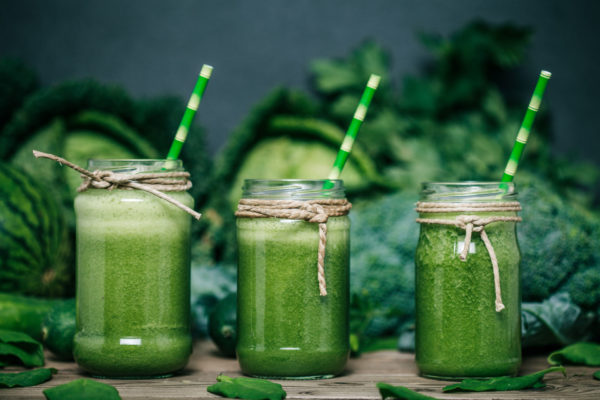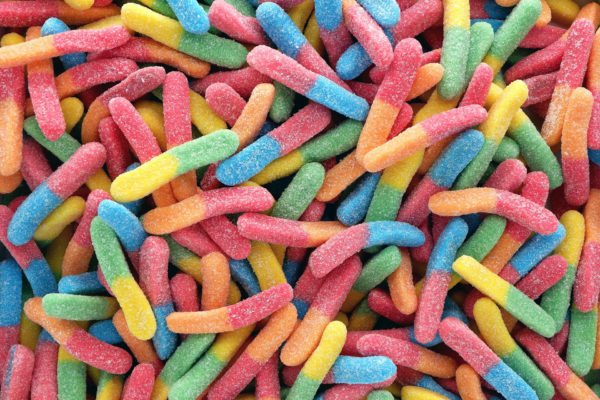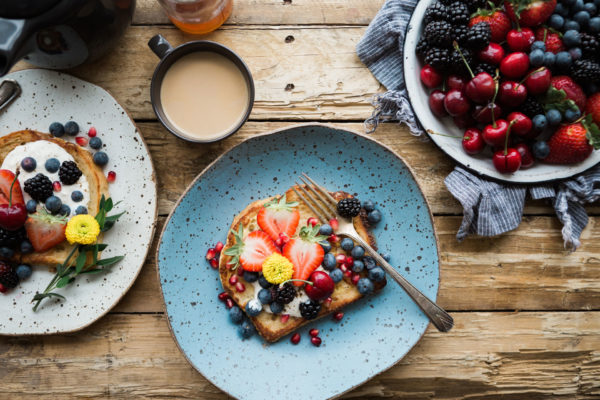New Study Showcases ‘Deadly’ Effects Of Ultra-Processed Foods
By
2 months ago
How do UPFs affect the body? We delve into the science

Many of us begin our day with a simple bowl of cereal. Later, we might snack on a protein bar, or some ‘healthy’ crisps. But did you know these seemingly harmless foods are actually classified as ultra-processed foods (UPFs)? The food category has been in the spotlight over the past couple of years, and (unsurprisingly) not in a positive way. We’ve known processed foods aren’t good for us for a long time, but recent studies have shown just how detrimental they can be for our bodies, with the latest finding thousands of people in Britain are dying prematurely as a result of over-consumption of UPFs. Here we speak to nutritionist Kim Pearson to find out more about identifying UPFs, and the potential health risks.
Ultra Processed Foods (UPFs): Everything You Need To Know
What Are Ultra Processed Foods (UPFs)?
A large portion of the Western diet is processed to an extent – fruits and vegetables are frozen, for instance, and fish is canned. These kinds of minimal processing aren’t usually a cause for concern: the problems arise when foods are engineered on a greater scale in order to change the flavour and/or texture. So how can we spot them?
Kim outlines the three key criteria to look for when identifying a UPF.
- ‘It comes in a packet.
- Contains more than five ingredients.
- Contains at least one item characteristic of the NOVA ultra processed food group. Either food substances never or rarely used in kitchens (such as high-fructose corn syrup, hydrogenated or interesterified oils, and hydrolysed proteins), or classes of additives designed to make the final product palatable or more appealing (such as flavours, flavour enhancers, colours, emulsifiers, emulsifying salts, sweeteners, thickeners, and anti-foaming, bulking, carbonating, foaming, gelling and glazing agents).’
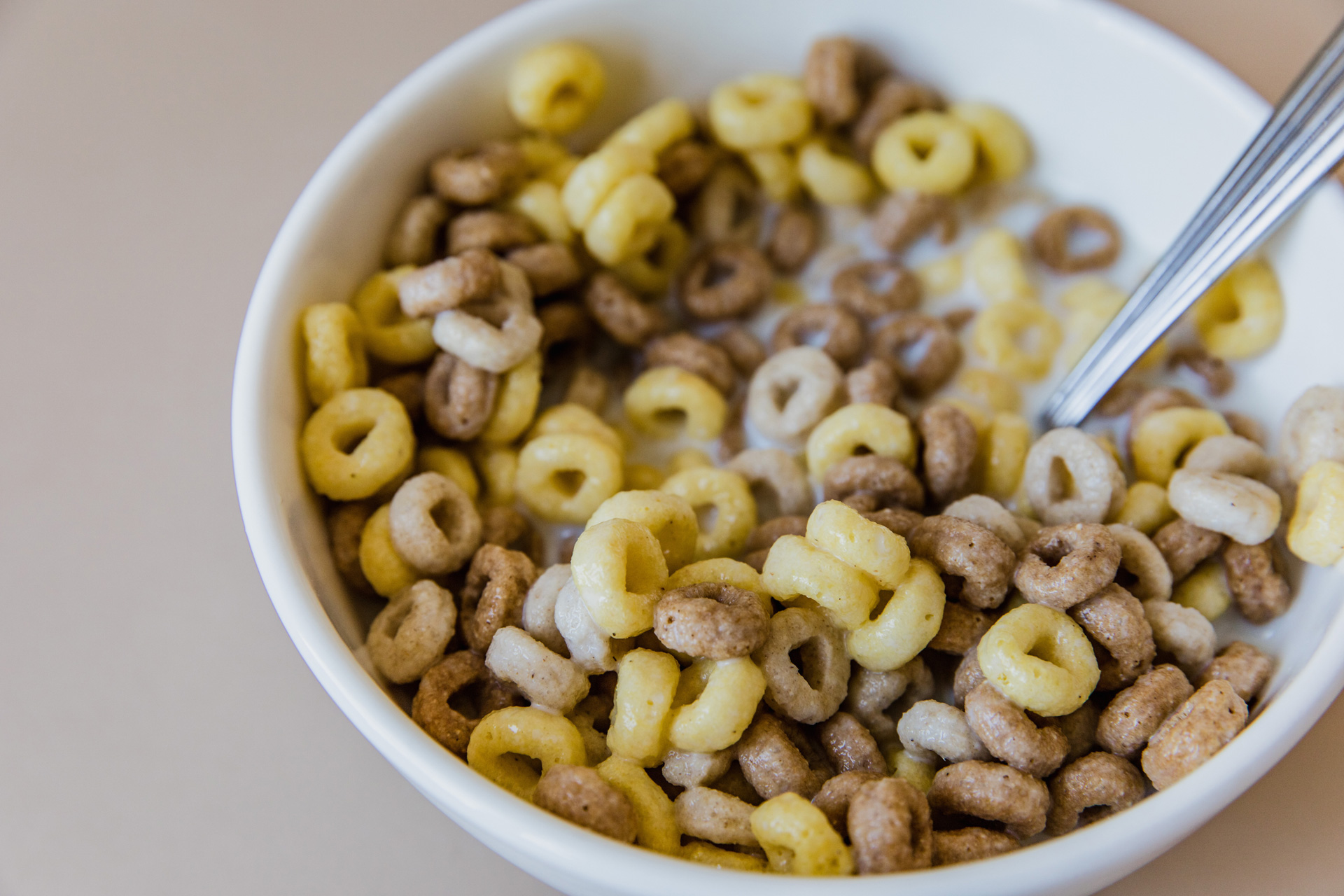
Pexels
Which Ultra Processed Foods (UPFs) Might Surprise Us – And What Can We Swap Them For?
While some foods scream ultra processed (ready meals, doughnuts, cookies, we’re looking at you), others are much more surprising – and often marketed as healthy options. Energy bars, pesto, almond milk and protein drinks are all ultra processed foods, to name a few. Here Kim shares some UPFs that might come as a shock, and offers some swaps.
- Hovis Wholemeal Sliced Bread: Swap for a homemade loaf – try the Lifechanging Loaf of Bread recipe.
- Eat Natural bars: Swap for a small handful of unroasted nuts with blueberries.
- Activia Yoghurt: Swap for plain organic natural yoghurt or coconut milk yogurt.
- Belvita Breakfast Biscuits: Swap for egg muffins. Make a batch and keep them in the fridge for a convenient, healthy grab and go breakfast.
- Proper Chips Lentil Chips (same goes for Popchips and Hummus Chips): Swap for olives or home made kale crisps.
What Are Ultra-Processed Meats?
A study by Harvard University has thrown ultra-processed meats into the spotlight – and it’s not a good thing. According to the American university, eating processed meat and fish products regularly increases the risk of death by up to 13 percent. This includes:
- Sausages
- Burgers
- Fish fingers
- Chicken nuggets
- Turkey twizzlers
And much more. The study concluded we should ‘[limit] consumption of certain types of ultra-processed food for long term health’, especially ‘sugar and artificially sweetened drinks and processed meats’. Other bad apples include ready meals and ice cream.
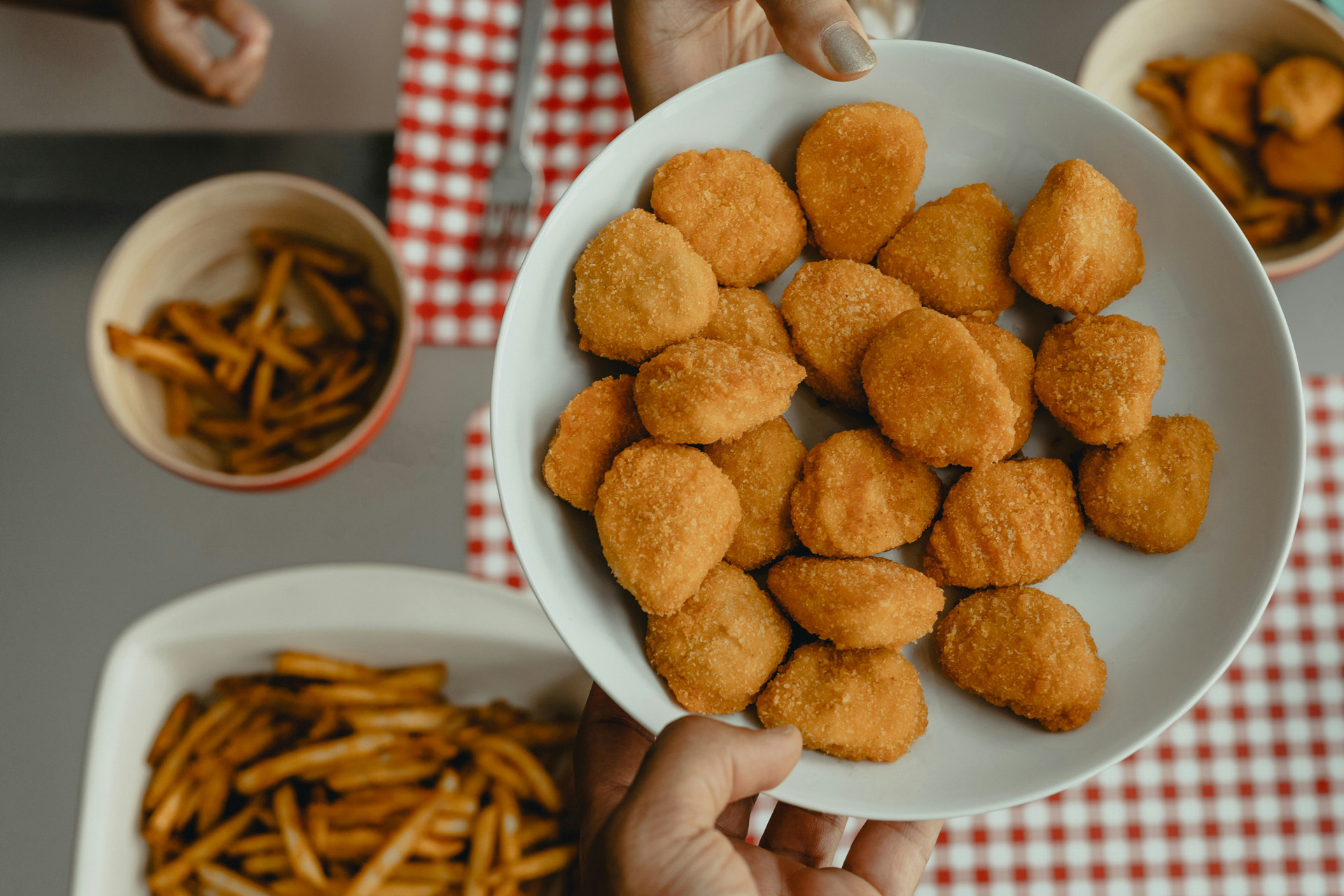
How Are UPFs Affecting Our Health?
‘As a nation we eat far too much ultra processed food,’ says Kim. ‘Data from the UK National Diet and Nutrition Survey (2008–2014) found that ultra processed foods (UPFs) account for 56.8 percent of total energy intake and 64.7 percent of total free sugars in the UK diet.’
This figure could be even higher for children. Kim adds: ‘More recent research from Imperial College highlighted that ultra processed foods make up a considerably high proportion of children’s diets. More than 60 percent of calories on average came from UPFs. The higher the proportion of UPFs they consume, the greater the risk of becoming overweight or obese.’
Some experts believe lots of us are actually addicted to UPFs: a recent review found ‘ultra-processed food addiction’ occurs in 14 percent of adults and 12 percent of children. So what are the potential health risks?
‘Research has not only linked UPF consumption to higher risks of obesity, but also high blood pressure and high cholesterol,’ says Kim. Research published in the BMJ has linked ultra-processed foods with a higher risk of 23 health problems, including cardiovascular disease, cancer and metabolic problems. A new study published in the American Journal of Preventative Medicine, meanwhile, has found an estimated 18,000 deaths in people aged 30 to 69 could be prevented if people ate less UPFs. Researchers looked at data from eight countries, with Britain second only to America when it came to dependence on ultra-processed food, with UPFs accounting for 54 percent of the average daily calorie intake.
Studies have linked high consumption of UPFs with mental illnesses too. Data from a study into women’s health from the US suggests that those who consume more UPFs, particularly those containing artificial sweeteners, are more likely to suffer from depression. ‘Experimental studies have shown that artificial sweeteners may trigger the transmission of particular signalling molecules in the brain that are important for mood,’ the authors concluded.
One of the most comprehensive deep dives into the topic comes from Dr Chris van Tulleken, whose book Ultra-Processed People investigates the ‘new age of eating’, exploring how UPFs are really damaging our bodies. ‘This is an emergency,’ Van Tulleken has said. ‘We need to think about the big food companies in the same way we do the tobacco companies.’ He also believes there should be national guidance stating UPFs are strongly associated with ‘inflammatory diseases like Crohn’s disease, metabolic diseases like type 2 diabetes, certain cancers, depression and anxiety, obesity and early death.’
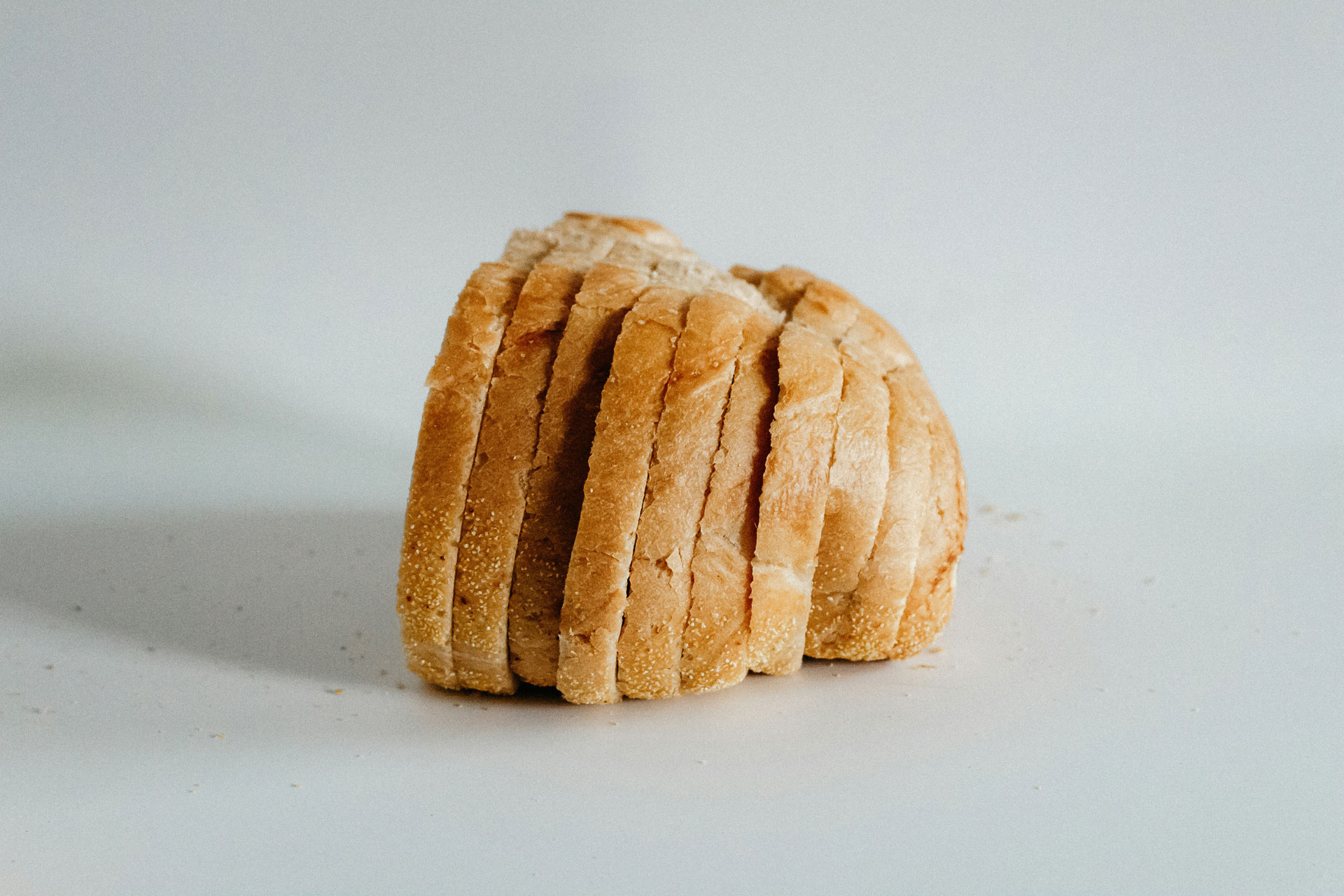
Unsplash
Are All UPFs Bad For Us?
New advice from experts and government advisors argues that not all processed food is necessarily bad, highlighting the risks in ‘demonising’ all UPFs. While they agreed that high-sugar foods like cake and biscuits are nutrient-poor, the team stressed things like wholegrain breakfast cereal, wholemeal bread and yoghurts can have a place in a healthy diet.
Prof Robin May, chief scientific adviser at the Food Standards Agency, said: ‘It’s really important that we don’t throw the baby out with the bath water. Many components are there for safety reasons. Additives that reduce the growth of bacteria or fungi have a really critical role in protecting consumers and extending the life of a product.’ He added: ‘We need to be driven by the science base and not have a knee-jerk reaction which treats everything the same.’
This approach was stressed by scientists from University College London, who argue it’s too simplistic to brand all UPFs as very bad. Some foods that are technically classed as UPFs could also fall into the ‘healthy’ category based on factors like their fat, saturated fat and salt content.
How Can We Reduce Our Intake Of Ultra Processed Foods (UPFs)?
Having knowledge of what they are and being able to spot them is crucial, says Kim. ‘Awareness is key. Once you’re aware of the defining characteristics of UPFs, it won’t take you long to identify them in the supermarket. Simply put: the less we eat, the better.’ Her top tips for avoiding them are:
- ‘Choose single ingredient foods as much as possible.
- Cook from scratch where you can.
- Read labels – look at the ingredients lists to know what you’re consuming.
- Make swaps. For example, plain, natural, organic yoghurt is a much better option than processed low fat yoghurts.’
Kim is a nutritionist with over 15 years of experience, find out more at kim-pearson.com




